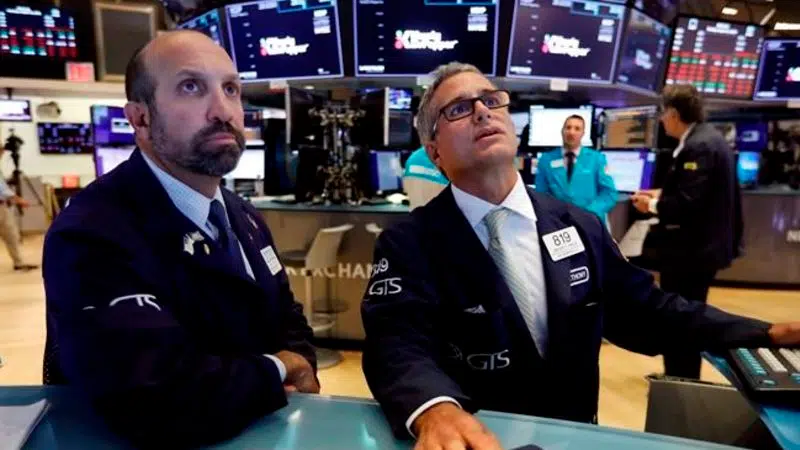
US stocks steady after plunge, but caution still reigns
NEW YORK — Stocks around the world remained stuck in the spin cycle Thursday, as worries about a possible recession collided with hopes that the strongest part of the U.S. economy — shoppers spending at stores and online — can keep going.
The S&P 500 flipped between modest gains and losses in morning trading, a day after it plunged to one of its worst losses of the year after the bond market sent out a fairly reliable warning signal of recession. Stocks from Tokyo to London, meanwhile, sank after China said it would take “necessary countermeasures” if President Donald Trump follows through on a threat to impose tariffs on more than $100 billion of Chinese goods on Sept. 1.
The U.S. bond market, which has been among the loudest and earliest to cry out warnings about weaker economic growth and inflation, also continued to show concern as yields fell.
In the U.S., Walmart shares surged 5% and helped to steady the market after it said it made a bigger profit in the last three months than Wall Street expected, thanks in part to strong online sales of groceries. A separate government report also showed that retail sales were stronger than economists expected last month.


